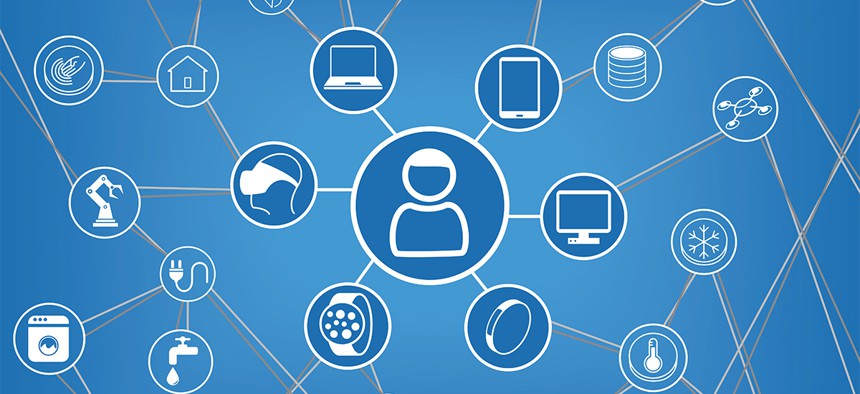DHS Think Startups Know How Best to Protect the Internet of Things

a-image/Shutterstock.com
It's an early attempt by DHS to connect with startups -- especially those close to its new office in Silicon Valley.
The Department of Homeland Security wants to be able to detect all devices connected to its network in a particular location -- say, an airport -- and it thinks startups will know how to do it.
DHS is looking for companies whose technology can not only detect devices and sensors, but can also verify and authenticate them, prevent spoofing and update devices' security systems. Ideally, the system wouldn't disrupt other devices, map out the location of those devices and would be easy to handle for nontechnical users.
The burgeoning Internet of Things -- a term for the increasingly connected network of computers, sensors and devices -- allows “any IoT system [to] be connected to any other device on the Internet,” DHS noted in a recent call for technology applications.
While connectivity can sometimes be helpful, it “also allows every node, device, data source, communication link, controller and data repository... to serve as a security threat and be exposed to security threats" -- especially because they're often connected to autonomous, distributed and even physical systems.
The call for Internet of Things security applications represents DHS' attempt to work with startups, especially those close to its new office in Silicon Valley, which opened in the spring. To entice startups, DHS last month unveiled plans to use small short-term technology contracts to bypass the lengthy administrative process associated with traditional contracting.
“Traditional procurement and assistance processes sometimes take too long and are ineffective at deploying state-of-the-art Homeland Security innovations,” DHS wrote.
Under the new model, DHS plans to make small awards -- between $50,000 to $200,000 -- to companies for three- to six-month performance periods. (According to the notice, a project that gets four rounds of funding could get up to $800,000 over 24 months, at the end of which the technology could be deployed for testing or acquired by another group.)
DHS also plans to use the new contracting system to collect technology related to first responders, aviation and drone security, and fighting biological threats.
(Image via a-image/Shutterstock.com)





